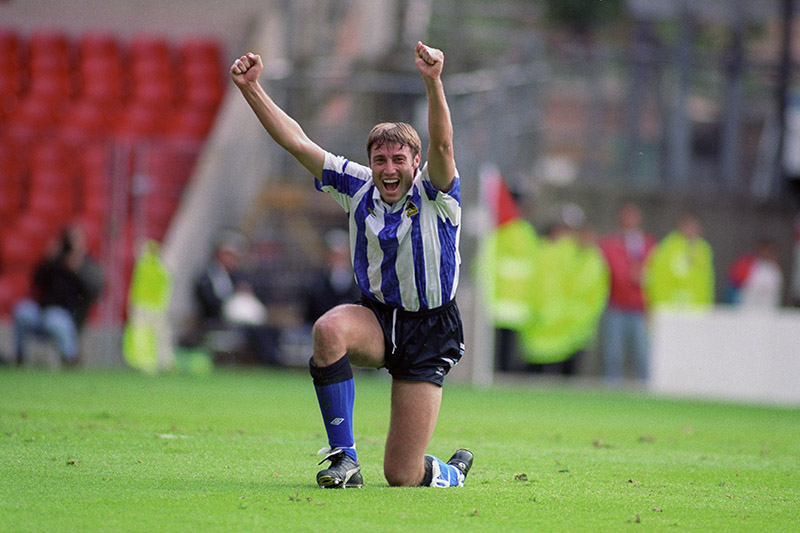
Search: 'Darwen'
Stories
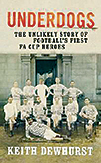 The unlikely story of football’s first FA Cup heroes
The unlikely story of football’s first FA Cup heroes
by Keith Dewhurst
Yellow Jersey Press, £16.99
Reviewed by Huw Richards
From WSC 306 August 2012
Keith Dewhurst has already quarried personal memories as a young journalist catapulted into the Manchester Evening News‘s United beat by the death of his predecessor at Munich to produce a memoir acclaimed in WSC 302 as “one of the best football books of its type ever written”.
Now he digs further, into family heritage in the Lancashire mill town of Darwen, to tell the story of the team that, in 1879, shook the still-nascent football world by twice holding the heavily favoured Old Etonians in an FA Cup quarter-final, before succumbing in the second replay.
All three games, thanks to FA rules and the refusal of the Etonians to either play extra-time or travel to Lancashire, were played at The Oval – then English sport’s national stadium – forcing Darwen into a succession of long, expensive and ultimately exhausting journeys.
A different outcome might have changed the title. Darwen, mostly millhands, gave away inches and stones per man to better-fed opponents. “Giantkiller” would have had a literal element.
The story, often bracketed with nearby Blackburn Olympic’s defeat of the Old Etonians in the 1883 final as a key marker in the game’s democratisation, is well known. Dewhurst, though, aims to put flesh on bare bones, to give life to the silent figures in team photographs and explain why this corner of Lancashire adopted football so passionately.
He puts both teams – he also looks closely at the Etonians – into the context of the early development of football and of wider social currents. This is a multifaceted story with regional and tactical dimensions – the Etonians played a very different game to the fluid, Scottish-inflected style of Darwen – as well as the obvious class aspects.
Dewhurst has dug widely and clearly enjoyed the archives. The outcome has a certain picaresque charm. A large cast of characters includes William Gladstone, an escaped gorilla and mad mill magnates. How can you not love a book that contrives to use “Antidisestablishmentarianism” as a chapter title?
As befits a well-established playwright, Dewhurst handles his large cast with skill. Individuals such as team captain James Knowles, who emigrated to the US before the end of the season, and the remarkable Dr James Gledhill, a tantalising link to the great Preston team of a decade later, emerge from the fog of history.
Along with this are subtle, thoughtful examinations of issues such as why Darwen went to such lengths to deny that their Scottish imports, Fergus Suter and Jimmy Love, were professionals – they almost certainly were – even though payments were not illegal until 1882.
It is, Dewhurst points out, part of the arbitrariness of history that Suter is memorialised in the Dictionary of National Biography as the first professional while Love disappeared so completely that nobody is sure even when he died. Dewhurst, typically, has found a credible answer. Now, though, this entire team has the memorial that it richly deserves.
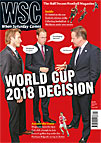 Simon Hart describes the scenes as Blackburn play their first match under the watchful eye of their new owners
Simon Hart describes the scenes as Blackburn play their first match under the watchful eye of their new owners
There are three Robbie Savages grinning in front of me as I take my seat in the press box high in the Jack Walker Stand. The one-time Blackburn Rovers midfielder is appearing in a book-plugging interview on his former club’s in-house TV channel, playing on monitors suspended from the ceiling of the stand. The sight of Savage, very much a man of his time with blond highlights and perma-tan, is juxtaposed with the more traditional spectacle unfolding on the hill behind the Riverside Stand opposite. This Sunday lunchtime kick-off is still over half an hour away and supporters trail down the brown hillside before crossing a bridge over the River Darwen and filing into the ground. Today is very much about the old and the new.
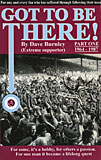 Got To Be There
Got To Be There
Part One 1964-1987
by Dave Burnley
Dawber, £10.00
Reviewed by Alan Tomlinson
From WSC 274 December 2009
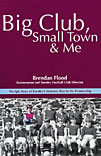 Big Club, Small Town & Me
Big Club, Small Town & Me
The epic story of Burnley’s meteoric rise to the Premiership
by Brendan Flood with Stuart Wilkin
TH Media, £9.99
Reviewed by Alan Tomlinson
From WSC 274 December 2009
Before and on October 18, 2009, the UK’s sport media focused upon what some called the “cotton-town derby” – Blackburn Rovers versus Burnley – that would establish “bragging rights” in east Lancashire. The two clubs were founder members of the Football League in 1888, but had not met in a top-flight fixture for over 40 years. It was an eerie atmosphere walking to Ewood Park from Lower Darwen, as the blue-and-white of Blackburn dominated the streets, one shirt announcing “Burnley fans eat bananas with their feet”. The 2,800 Burnley supporters were bussed in with a police escort. During this 11-mile journey passengers were abused from the windows of respectable Blackburn residences. On arrival buses were cordoned off by lines of police, preventing any contact with the visiting supporters. “How many of you are on duty for this?” I asked a young policewoman. “All of us… They’ve cancelled everyone’s day off.”
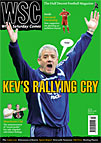 Seventy-five years ago, City and United clubbed together to strangle a new rival. Gary James explains how football history in the north-west could have been very different had Central been given a League chance
Seventy-five years ago, City and United clubbed together to strangle a new rival. Gary James explains how football history in the north-west could have been very different had Central been given a League chance
In recent years much has been made of the growth of FC United of Manchester and their impact on support, community work and attitudes in Manchester. However, the United offshoot were not the first Mancunian side created following dissatisfaction among supporters. In fact FC United arrived 80 years after a bigger offshoot had seriously challenged the livelihood of Manchester’s two major sides. The difference being that in the Twenties it was Manchester City’s move to Maine Road that prompted the creation of a new forward-looking club – Manchester Central FC, who joined the semi-professional Lancashire Combination in 1928-29.